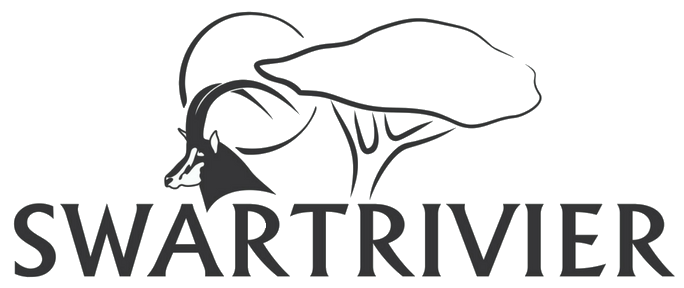Swartrivier Safaris
Welcome to Swartrivier Safaris, your gateway to unforgettable hunting adventures in the pristine Karoo wilderness. Our safaris provide an exclusive opportunity to pursue magnificent species such as buffalo, sable, roan, and a diverse array of plains game in their natural habitat.
With expert guides and a commitment to ethical hunting practices, we offer a truly authentic experience for seasoned hunters and newcomers alike. Immerse yourself in the rugged beauty of the Karoo as you embark on thrilling and rewarding hunts, creating lasting memories in the heart of Africa's untamed wilderness. Discover the thrill of a fair chase and the camaraderie of the hunt with Swartrivier Safaris.
FAQs
-
Our Hunting season at Swartrivier Safaris starts March and we end our season September.
However, Management Packages are only available from June to August.
-
The Eastern Cape in South Africa enjoys a temperate climate, providing a comfortable environment for hunting. Here are the average temperatures for each hunting season:
Early Season (March - April): Average temperatures range from 65°F to 90°F.
Mid-Season (Winter, May-August): Expect average temperatures between 40°F and 85°F, with the northern areas experiencing freezing nighttime and early morning temperatures.
Late Season (September): Average temperatures span from 65°F to 100°F.
-
South Africa's official currency is the South African Rand. It operates on a system of 100 cents to 1 rand. You can conveniently find exchange bureaus in towns, airports (preferably), and many hotels. We recommend exchanging some currency for South African Rands before your journey, especially if you plan to purchase African souvenirs during your safari.
-
The electricity in South Africa is 220 Volt. Please check that any of your electrical equipment charges accept 110 – 240 Volts or else you will need to bring an inverter from 220 Volts to 110 Volts. You will also need a pin plug that fits into the South African system.
-
It's important to note that all of Swartrivier Safaris hunting regions in South Africa are free of Malaria. Travelers to Southern Africa are not required to have any mandatory vaccinations. However, we strongly recommend ensuring that your tetanus shots are current.
-
Addressing the topic of gratuities is important because it's a common question. To begin, it's essential to clarify that in our company, tips are not obligatory; they are earned by the dedicated efforts of our staff. Over the past seasons, we've gathered data on the tips received by our staff and calculated an average after each season. Here is a general guideline for what can be considered an average:
Professional Hunters: Typically, gratuities range from $100.00 to $250.00 USD per day. The specific amount may vary depending on the nature of the hunt.
Camps: For a 7/10 day Safari, covering a diverse team including Managers, Cooks, Kitchen Staff, Room Attendants, Laundry Staff, Gardeners, and Porters, an average tip may fall within the range of $400.00 to $600.00 USD.
Trackers/Skinners, Skinning Shed Staff: For a 7/10 day Safari, customary gratuities may vary from $170.00 to $3250.00 USD.
Skinning Shed & Game Carriers/Retrievers: In the same safari duration, tips for Skinning Shed and Game Carriers/Retrievers typically fall in the range of $50.00 to $100.00 USD.
Day Trip Excursions Guide: When engaging in day trip excursions, it's customary to provide tips in the range of $50 to $75 per day.
While we accept various methods of payment for your safari bill, such as credit cards, personal checks, and wire transfers, it's important to note that tips for trackers, camp staff, and Professional Hunters should be presented in US dollars or Euros in cash. Our staff may not be able to exchange checks. However, if you prefer, tips can be added to the final safari bill, and the amount will be adjusted accordingly. Please consult your Professional Hunter regarding the customary tipping practice, and always remember that a tip is a welcomed bonus but not an anticipated obligation.









